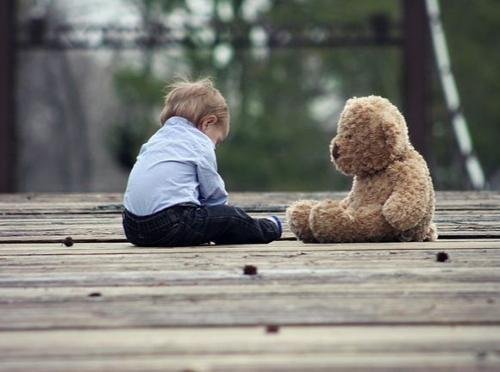The Child Archetype
What if we can put on beginner’s mind even after the hurts of life have made us cautious and self-protective?
The Child Archetype
“Beginner’s mind is a readiness to always be in awe, to always be excited. Beginner’s mind is one’s mind before the hurts of life have made us cautious and self-protective. We can still be excited, we can still be in awe, we can still expect tomorrow to be different than today.”
—Richard Rohr
The last of the Survivor Archetypes, as outlined in Caroline Myss’ book Sacred Contracts, is the Child. In my opinion, if you’ve worked with the previous three, the Victim, the Saboteur and the Prostitute, you already have a sense of how the Child is present in your life. In the shadow, the Victim has an inability to protect herself, the Saboteur has an inability to make choices to keep her working toward her goals, and the Prostitute doesn’t trust herself to get what she wants without compromising herself. These are all also true of the Child.
There are very few children who have the power to protect, choose wisely or trust themselves without the support of kind, functional, adult caretakers. In an ideal world, the Child is raised by loving, supportive adults and systems which, through the right mix of love, support (including economic and educational support), safety and good modeling, encourage the development of those qualities in children. These children, as adults, take on the Sovereign archetype, which is the archetype embodied by people who have the confidence to create the lives they choose, full of quality relationships, self-esteem, integrity and a sense of responsibility for the collective.
However, no one’s childhood is perfect, and most of us, as adults, must grapple with issues of innocence vs. maturity, dependence vs. independence, individuation vs. the need to belong and presence/play vs. leadership. (Stacey Couch, Wildgratitude.com, article The Child. Click here to listen to her audio class on the Child). I would also add the issue of naïveté vs. savviness.
As much as we would like it to be different, the world is full of darkness. Children who are not adequately protected can easily become victimized. What happens when these children reach adulthood and they are too fearful to take risks, are overly dependent on others to take care of them, or continue to be victimized due to a lack of confidence or arrested development? Or what if these children reach adulthood so disillusioned they are driven to be over-responsible, cannot trust that anyone could possibly be good without a hidden agenda, or decide that attacking others is safer than waiting to be attacked? In either of these cases, the sense of presence, play and innocence is lost.
The light side of the Child is called the Guardian of Innocence. Regardless of what your childhood was like, the Guardian of Innocence invites you to healing. It’s important for an adult to be savvy and careful of people or situations that might do them harm, and once they can trust in their ability to protect and stand up for themselves, they can begin to feel safe enough to regain the qualities of presence, awe and optimism that the world so desperately needs for health, balance and wholeness.
Thinking about the Richard Rohr quote above, what if we can put on beginner’s mind even after the hurts of life have made us cautious and self-protective? Stacey Couch asks, what if we could balance innocence with maturity, dependence with independence and responsibility, presence/play with leadership and naiveté with savviness? This is the invitation of the Guardian of Innocence.

